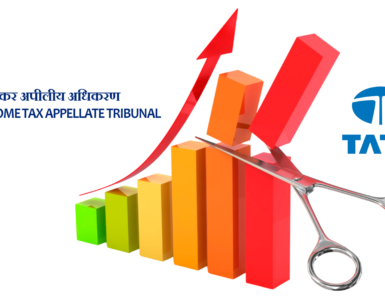Capgemini India Private Limited (Petitioner Company) has filed the Petition seeking sanction of the Scheme of Arrangement (hereinafter referred to as “the Scheme”) with its Equity Shareholders (hereinafter referred to as “the Shareholders”), in accordance with the provisions of Section 391 read with Sections 100 to 103 of the Companies Act,1956 (hereinafter referred to as “the Act”) from the Court.
As per the Scheme, the Petitioner Company is proposing to purchase not more than 2,21,231 Equity Shares of the Company either in physical form or dematerialised form of Rs. 100/- each fully paid up, representing 30% of the issued, subscribed and paid-up share capital.
There is no compulsory purchase; an option is given to the equity shareholders under the Scheme. The manner and procedure of purchasing the equity shares are provided in the Scheme.
Objection raised by Regional Director (RD):
According to RD the buyback of shares must be effected only under Section 77A of the Companies Act, 1956/Section 68 of the Companies Act, 2013. If a buyback of shares is effected under Section 77A/Section 68, then the distributed income of the company as defined in Section 115QA of the Income Tax Act would be charged to tax, and it is for this reason that the company is not following the procedure prescribed under Section 77A/Section 68 and has opted for the procedure under Section 391 which would not attract such tax under Section 115QA of the Income Tax Act.
According to the Regional Director if the Scheme is sanctioned it will amount to an evasion of income tax and outflow of foreign exchange to the tune of Rs.248 crores and therefore on this ground, the Scheme should be rejected. According to the Regional Director the company is evading its liability to pay tax.
Contention raised by the Petitioner:
The contention raised by the Petitioner is that the Regional Director has no locus-standee in respect of tax matters, particularly when the Income Tax Authorities have not raised any objection.
The Regional Director has the requisite locus stand to raise all objections in respect of a scheme including objections pertaining to taxation laws. He can do so even if the Income Tax Authorities do not raise any objection. So the objection of the Petitioner with regard to the locus-standee of the Regional Director is untenable and deserves to be rejected.
The Petitioner has submitted that it is open to the Petitioner to follow either the procedure under Section 77A/Section 68 or the procedure under Section 391 read with Sections 100 to 104 to effectuate the buyback of shares. It is not mandatory for a company to buy back its shares only by following the procedure prescribed by Section 77A.
In any event, the Petitioner has stated that the issues relating to Income tax that may arise out of the Scheme may be left open to be dealt with and decided by the Income Tax Authorities in accordance with the law. The statement is accepted. Consequently, nothing survives in the objections of the Regional Director.
Sanctioning Scheme of Arrangement:
The Scheme of Arrangement as proposed is sanctioned with a clarification that the issues relating to Income Tax that may arise out of the Scheme are left open to be dealt with and decided by the Income Tax Authorities in accordance with law.
The argument of the Regional Director that foreign exchange amounting to Rs.248 crores is drained away, is of no avail once it is held that the procedure adopted by the company is permissible in law.
Prior to the introduction of section 77A, the only manner in which a company could buy back its shares was by following the procedure set out under sections 100 to 104 and section 391 which required the calling of separate meetings of each class of shareholders and creditors as well as (if required by the court) the drawing up of a list of creditors of the company and obtaining their consent to the scheme for reduction.
The legislative intention behind the introduction of Section 77A is to provide an alternative method by which a company may buyback up to 25 per cent of its total paid-up equity capital in any financial year. It does not supplant or take away any part of the pre-existing jurisdiction of the company court to sanction a scheme for such reduction under sections 100 to 104 and section 391.
The company cannot be compelled to follow only the method that results in payment of income tax. It is well settled that an assessee can always manage his affairs in a manner so as to avoid payment of tax. The Company is entitled to buy back its own shares by means of a scheme under Section 391 read with Sections 100 – 104 of the 1956 Act, the scheme cannot be said to be a colourable device to evade income tax. It is a legally permissible procedure which the Petitioner is entitled to follow to buy back its share.
Position under Section 230 of the Companies Act 2013:
Sub- Section10 of Section 230provides as follows:
“No compromise or arrangement in respect of any buyback of securities under this section shall be sanctioned by the Tribunal unless such buyback is in accordance with the provisions of section 68.”
This provision has an impact on the law. As this provision requires that the scheme under Sec 230(corresponding to Sec 100 to 104 under the old Act) can be sanctioned by the honorable court/NCLT but the same has to be in compliance with Sec 68(corresponding to SEC 77A of The old Act). However, at present Section 230 has not come into force and hence same need not be considered.




